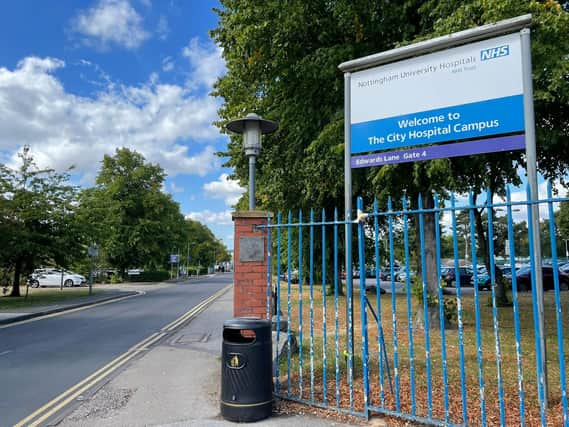Second critical incident in three months declared across Nottinghamshire NHS


On Tuesday last week, Nottingham University Hospitals (NUH) declared a critical incident after more than 200 patients were ‘medically fit for discharge’ – but could not leave the hospital because of pressures in the social care sector.
Now, a system-wide critical incident is in place across Nottinghamshire so “co-ordinated steps can be made to prioritise and maintain safe services for staff and patients”.
Advertisement
Hide AdAdvertisement
Hide AdIn July, a system-wide critical incident was also declared in Nottinghamshire.
NUH, which runs the Queen’s Medical Centre and Nottingham City Hospital, and Sherwood Forest Hospitals, are “facing extreme pressures” and people are being asked to only call 999 and attend emergency departments if it is a life-threatening emergency.
On Thursday September 29, the chief executive of NUH, Anthony May, apologised after some operations were cancelled as the trust prioritises those in urgent need of care.
The news was discussed at Nottinghamshire Healthcare NHS Foundation Trust’s Annual General Meeting on September 30.
Advertisement
Hide AdAdvertisement
Hide AdThis is a seperate NHS organisation running mainly mental health services in the county.
Anne-Maria Newham, trust chief executive, said during the meeting: “We are currently in critical incident mode.
“About six weeks ago the whole system declared a critical incident at that point and it lasted for six and a half days. This one was called in the middle of this week.
“What that means is the acute trusts, Sherwood Forest Hospitals and Nottingham University Hospitals, are unable to cope with the demand of patients coming through their emergency pathways.
Advertisement
Hide AdAdvertisement
Hide Ad“The critical incident was called because there were more patients waiting than they actually had beds for.
“The system then gets together to look at how we can relieve the system from that, whether we can expedite discharges and prevent patients from going in the first place.
“We are a part of the solution to that incident.”
Paul Devlin, trust chairman, added: “Thinking about the winter months ahead, it’s going to be absolutely critical that we continue to play our collaborative part.”
People are encouraged to contact 111 if they are unsure where to go.